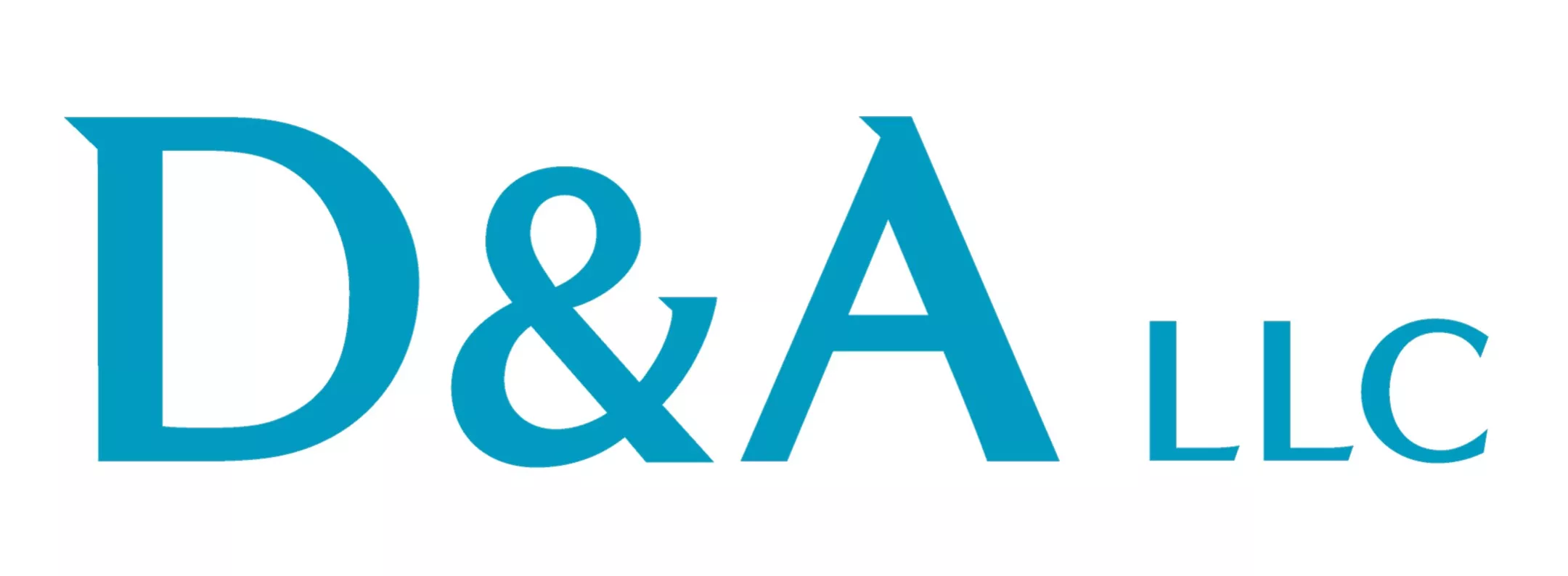- within International Law topic(s)
- within Technology and Employment and HR topic(s)
- in European Union
- with readers working within the Chemicals industries
There is an old African proverb that says,"Mountains never meet, but people do." This is exactly what happened during the inaugural Korean-African Summit that took place on the 4th and 5th of June 2024.
South Korea hosted 48 African government representatives, its largest delegation to date, alongside various stakeholders for this inaugural Summit. The two-day Summit was aimed at deepening cooperation in trade and technology between the host and the African countries. This initiative aligns with a broader trend of increased engagement with Africa by global powers, including Russia, the US, and China, each of which has held or planned similar summits.
- Key Outcomes from 2024 Korea-Africa Summit
Amongst the flurry of activity that took place during the Summit, the following is a short summary of some of the key take away points and outcomes:
On governmental level:
- Together with President Yoon of Korea, 48 heads of African
countries, African Union (AU), and African
Development Bank (AfDB) published a Joint
Declaration1 in which:
- the representatives launched "Korea-Africa Critical Minerals Dialogue" in order to secure supply chain for critical minerals and promote technology and knowledge cooperation;
- the Korean government also pledged to expand Official Development Assistance (ODA) up to US$ 10b by 2030 to collaborate on projects with Africa, including EDCF funds and grants; and
- the Korean government also pledged to provide approximately US$ 14b in export financing to Korean companies by 2030 to encourage their activities in Africa.
- During the Summit, 12 African countries participated in the ministerial talks held with the aim to expand economic cooperation.
- Ministry of Trade, Industry and Energy (MOTIE) sealed 12 MOUs with 11 African countries for inter-governmental economic cooperation in trade, investment, and minerals.
- With 8 African countries, including Ghana, Malawi, Côte d'Ivoire, and Zimbabwe, the ministry signed a Trade and Investment Promotion Framework (TIPF) for establishing a tailored economic cooperation platform void of bound tariffs.
- Furthermore, Korea International Trade Association (KITA) and the African Continental Free Trade Area (AfCFTA) Secretariat agreed on establishing a Korea-Africa Economic Cooperation Commission for the continued development of Korea-Africa economic cooperation.
On Korea and Tanzania discussions:
- The Korean government and the Tanzanian government jointly declared the launching of negotiations for a bilateral Economic Partnership Agreement (EPA), which marks the first such negotiation with an African country.
- The Korean government and the Tanzanian government also signed a framework agreement enabling concessional loans from the Economic Development Cooperation Fund (EDCF) for US$ 2.5b from 2024 to 2028.
- The Korean government and the Tanzanian government further signed a strategic minerals MoU on geological surveys, mining investments and 'beneficiation' of critical minerals such as nickel, lithium and graphite.2
On Korea and Morocco discussions:
- MOTIE also agreed to start pushing negotiations for an EPA with Morrocco, commencing discussions on a trade agreement that would cover supply chains, digital, and clean economy.
On private level:
- MOTIE announced on June 5 that a total of 47 agreements and MOUs were sealed during the Summit in various areas like energy, minerals, manufacturing, and infrastructure.3
- In the private sector, a total of 35 agreements and MOUs were inked between the two sides' private parties, through which Korea Electric Power Corporation (KEPCO), Korea Trade-Investment Promotion Agency (KOTRA), K-SURE, and Korea Mine Rehabilitation and Mineral Resources Corporation (KOMIR) will be stepping up their cooperation with African countries in areas like small modular reactors (SMRs), energy storage systems (ESS), trade and investment, new renewables, and critical minerals.
- Trade, Investment and Development Opportunities for Korea into Africa
Through the Summit, South Korea was keen to capitalize on Africa's vast supply of key mineral reserves. Africa is a major source of nickel, cobalt, graphite and lithium, all which are crucial in the manufacture of semiconductors, batteries and electric vehicles, which are among the major export items for South Korea. Securing a stable supply of the mentioned minerals will therefore be crucial for Korea, owing to concerns that it would experience future challenges in securing a stable supply of the mentioned minerals. It is against this background that Tanzania signed two accords, granting South Korea access to its ocean resources and minerals crucial for clean energy technologies, such as nickel, lithium, and graphite.
- South Korea's need for Critical Mineral Security
In February of 2023, the South Korean Ministry of Trade, Industry, and Energy unveiled a strategy aimed at ensuring a consistent and secure source of critical minerals such as lithium, nickel, and rare earth materials. This initiative was in response to escalating geopolitical uncertainties and developing global supply chain issues caused by the shifting dynamics between the United States and China.
The ministry pinpointed 33 minerals, highlighting ten among them as strategically vital for semiconductor and electric vehicle (EV) battery production – key sectors in which South Korea holds significant prominence. The 10 critical minerals are lithium, nickel, cobalt, manganese, graphite (all critical key materials for lithium-ion batteries), and five kinds of rare earth mineral.
South Korea meets around 95% of its mineral demand through imports and China is by far and away the country on which South Korea is most dependent in this regard. As of last year, 25 out of 33 imported strategic minerals had China as one of their three main sources. As such, Korea can longer ignore alternative supply chains for critical minerals and Africa in this regard can play a massive role in helping Korea in its objectives of critical mineral security.
- South Korea's Strategy and Game Plan for Critical Mineral Security
A recent strategic development is South Korea chairing the Minerals Security Partnership (MSP) for one year starting July 1st, leading cooperation among 14 member countries and the European Union to secure a stable global critical mineral supply chain. The MSP aims to diversify critical mineral sources essential for advanced industries and clean energy transition.
Chairing the MSP will likely boost South Korea's critical mineral goals. As the lead nation, South Korea will likely set long-term objectives, foster collaboration between MSP members and mineral-rich countries, and share industry trends with South Korean businesses. This role allows South Korea to shape global policies on critical mineral supply chains.
South Korea has intensified its efforts to secure critical minerals through strategic partnerships. In the recent U.S.-ROK-Japan Ministerial Meeting on Industry, the three countries agreed to enhance cooperation in semiconductor and critical mineral supply chains. South Korea and Japan also established a platform for hydrogen and ammonia supply chain cooperation.
Furthermore, President Yoon also committed to strengthening critical mineral partnerships with African nations during the Summit launching a ministerial level dialogue and expanding development assistance.
- South Korea: Framework Act on Supply Chain Stabilization Support for Economic Security Newly Implemented in June
Korean government has been making legislative efforts in order to control supply chain risks and stabilize supply chain security by enacting so-called 3 Supply Chain Acts which are as follows:
- The Framework Act on Supply Chain Stabilization Support for Economic Security (implemented on June 27, 2024);
- The Act on Special Measures to Strengthen Competitiveness and Stabilize Supply Chain of Materials, Components, and Equipment Industry (implemented on August 7, 2024);
- The Special Act on National Resource Security (to take effect on February 7, 2025).
Subsequent to the Korea-Africa Summit, on June 27th Mr. Sang-mok Choi, the Deputy Prime Minister and Minister of Economy and Finance, called the first Supply Chain Stabilization Committee meeting4 pursuant to the "Framework Act on Supply Chain Stabilization Support for Economic Security". This Act is to enhance the national level response to the supply chain risks. The committee, established under this new Act, serves as an intergovernmental control tower for the government's supply chain stabilization policies. During the committee meeting, discussions focused on ① the Supply Chain Stabilization Strategy, ② the designation of economic security items and services (proposal), and ③ the composition and operation direction of the Supply Chain Stabilization Committee.
- Key Takeaway from the Supply Chain Stabilization Committee Meeting
First, the Korean government's efforts will focus on stabilizing the supply and demand of key products. The government will increase the number of "economic security items" from 200 to 300, with a particular emphasis on critical industrial products like semiconductors and batteries. Measures will be implemented for self-reliance and diversification, supported by a 5 trillion won Supply Chain Stabilization Fund to assist private companies and expand public stockpiling for crisis situations.
Second, the Korean government aims to reinforce the supply chain ecosystem by boosting domestic manufacturing. Companies producing economic security items will be encouraged to increase domestic production through exemptions and eased tax credit requirements for acquiring overseas resources. Additionally, supply chain links will be strengthened to secure raw materials, intermediate goods, and transportation, with special support measures for SMEs vulnerable to disruptions. The government will also consider supporting domestic production of items with unstable supply, such as urea and graphite.
Third, to localize core supply chain technologies and enhance protection, the Korean government will increase financial support for R&D in advanced strategic industries and core technologies. This may include extending tax benefits to core supply chain technologies. Regulations will be tightened to prevent the leakage of critical technologies and patents, particularly in defense and key industries.
Finally, the government will promote international cooperation through agreements like the IPEF Supply Chain Agreement and Mineral Security Partnership (MSP) and explore projects through the Supply Chain Stabilization Fund and official development assistance.
These strategies will be formalized in a "Supply Chain Stabilization Master Plan" in the second half of the year, outlining actions for the next three years across various sectors, including key products, advanced industries, food, and logistics.
- Hello Africa
Korea is currently recalibrating its focus and interest across the globe as it seeks solutions to secure its critical mineral requirements. It seems that a new dawn is breaking between Africa and Korea and critical minerals are going to play an integral part in opening doors and discussion between the two regions as both will be seeking to find mutually beneficial collaborations and partnerships. This can only be done and cemented through effective and meaningful long-term relationships which are built on shared values and trust. South Korea needs to play the long game. The old Africa proverb could never be truer, "A patient man will eat ripe fruit".
Footnotes
2 https://www.bilaterals.org/?tanzania-s-korea-signs-us-2⟨=en
3 https://www.korea.net/Government/Briefing-Room/Press-Releases/view?articleId=7431&type=O
The content of this article is intended to provide a general guide to the subject matter. Specialist advice should be sought about your specific circumstances.



